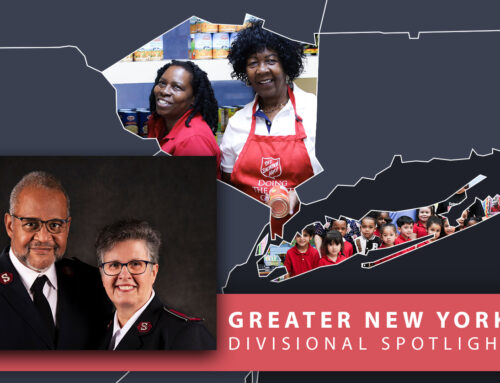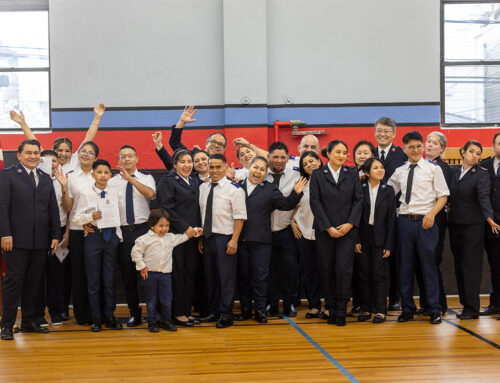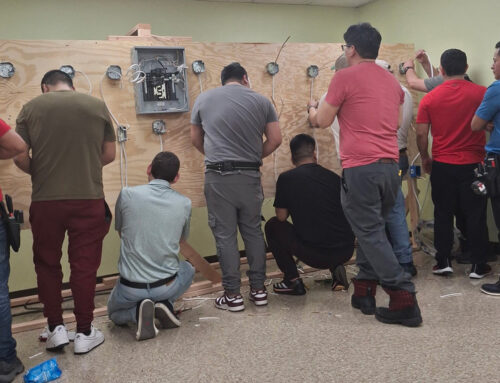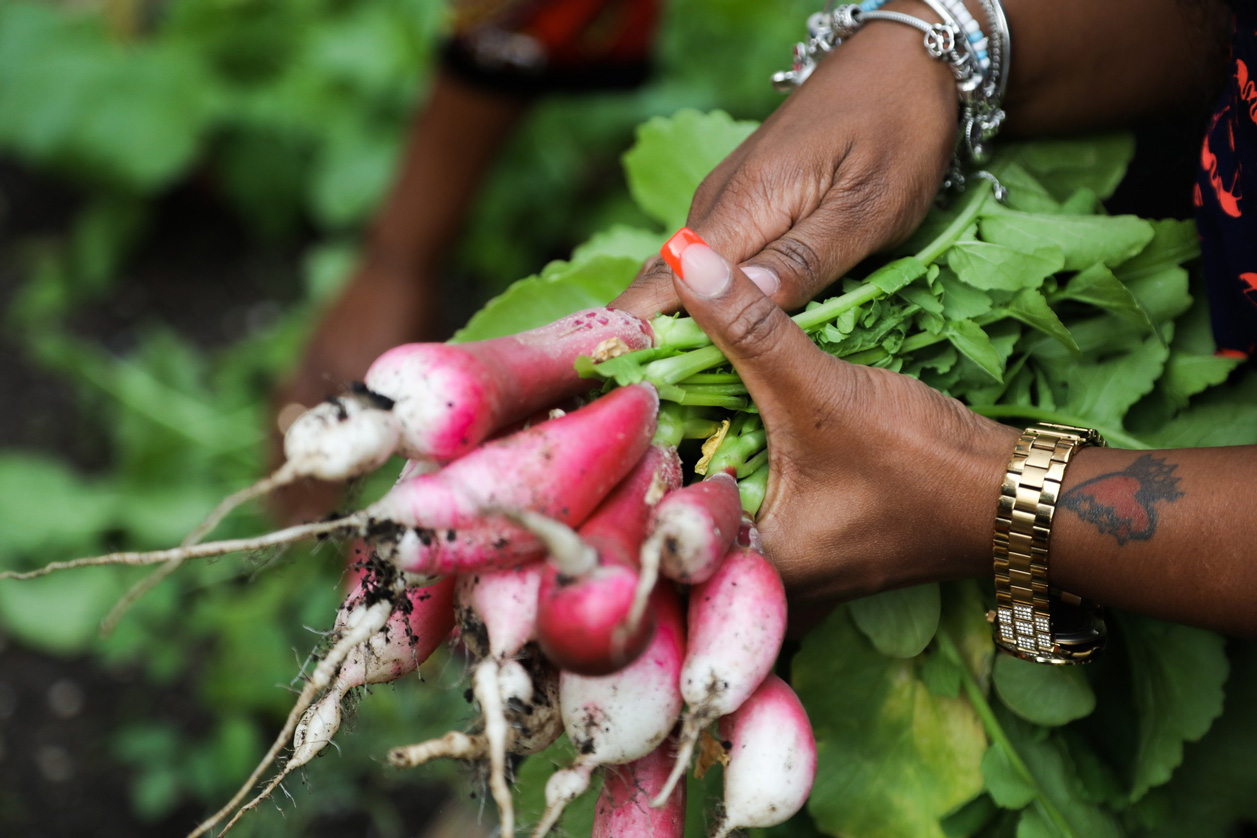
A garden grows in Queens
By Robert Mitchell
“Let the beauty of Jesus be seen in me,
All his wonderful passion and purity,
Oh, Thou Spirit divine, all my nature refine,
Till the beauty of Jesus be seen in me.”
—Let the Beauty of Jesus Be Seen in Me.
The community garden at The Salvation Army’s Springfield Family Residence in Queens, N.Y., not only connects the residents to each other and provides food, but teaches valuable spiritual lessons.
Bilqis Benu, the children’s services supervisor for the residence, said planting and watching various vegetables and fruit blossom teaches the 85 families in the shelter that the “growth happens by the grace of God.”
“All of this is provided by the sunlight and water and who makes all of this? How is this all possible? It’s a wonderful way to show gratitude to God,” Benu said. “We didn’t make it. God did and we’re growing it, so we’re able to be like worker bees. It’s tangible.
“What a better way to know that there’s abundance and growth and perseverance than when you see a garden actually going from something tiny to becoming something of substance?”
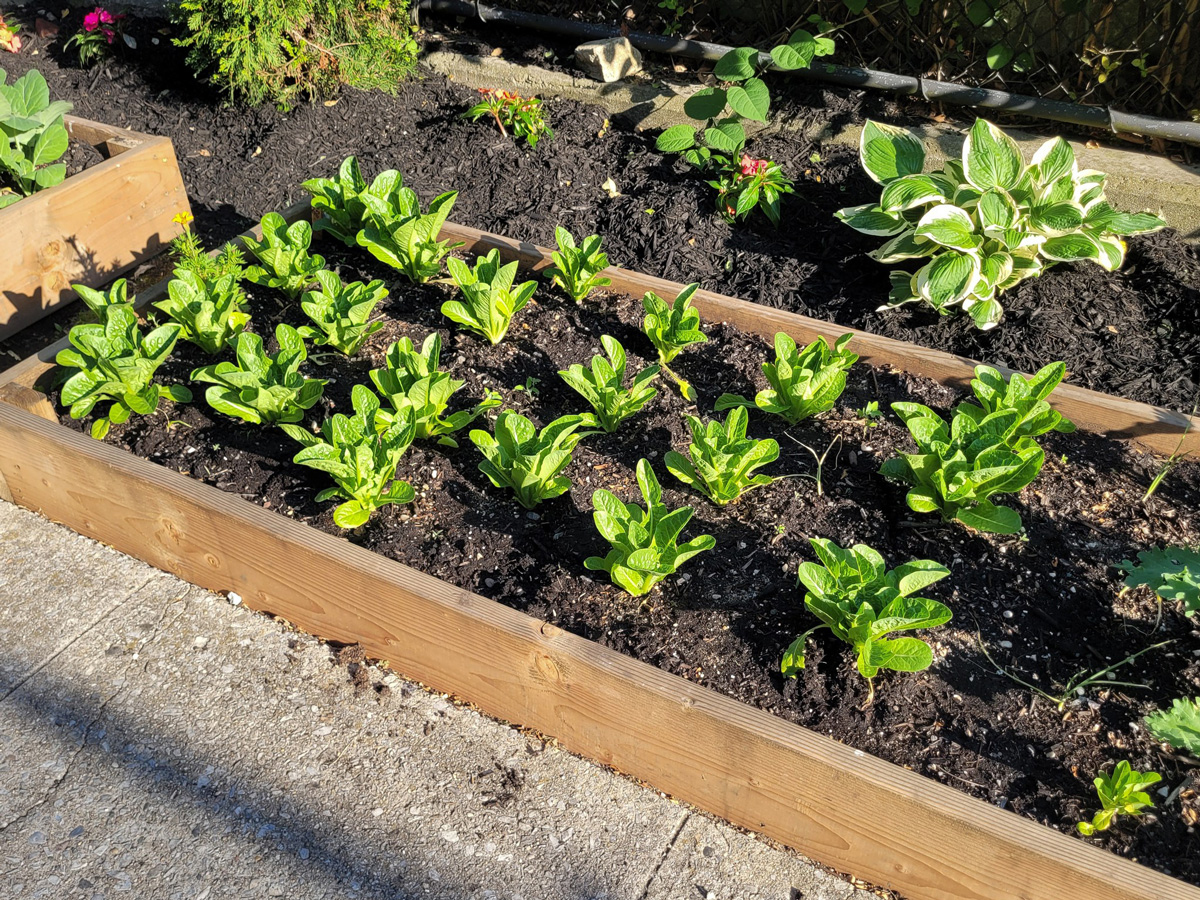
Benu said the garden provides “relaxation and connection” and a reminder that the Earth is “a supplier of health.” She said a 4-year-old girl at the shelter with ADD and epilepsy found the garden a calming influence; the girl even brought a butterfly and said it should be in the garden.
“The garden has resonated with our residents,” she said. “Even when they leave, they can associate the shelter with growth and abundance. I think it has a huge impact emotionally, mentally, and physically.”
 Planning for the garden began in 2021 during COVID and has now grown to four beds with the help of Cornell University, the city of New York, and others. An urban garden specialist from Cornell got the ball rolling after a soil sample showed the grounds would be suitable for a garden. Home Depot even donated a shed.
Planning for the garden began in 2021 during COVID and has now grown to four beds with the help of Cornell University, the city of New York, and others. An urban garden specialist from Cornell got the ball rolling after a soil sample showed the grounds would be suitable for a garden. Home Depot even donated a shed.
The garden beds are full of radishes, cauliflower, kale, collard greens, peppers, red-leaf and green-leaf lettuce, sunflowers, tomatoes, basil, and more.
“These vegetables are being groomed by us and we’re cleaning them, we’re watering them, and we’re taking care of them together,” Benu said. “We’ve asked the residents to come down and take part in that. The food all goes back to the community here at the shelter.”
Students from the residence also take part in nutrition and cooking classes through Cornell University’s Action Research Collaborative.
Benu said the garden may get larger in time.
“We may expand it if we get more grants and things like that,” she said.





